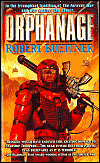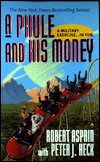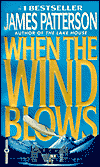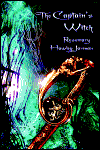
The Separation, by Christopher Priest
Book Review by SJ Higbee
Have you read this book?
I'm a fairly decisive person. But, very occasionally, a book has me
seriously conflicted. The Separation is one such novel. Priest is an
interesting and powerful writer with a very individual voice. He is
fascinated by the notion of an unreliable narrator - and he doesn't
regard himself as a science fiction or fantasy writer. He's best known
as the author of the book The Prestige, which was made into the
successful film. Here in The Separation are many of the themes that we
found in The Prestige - a double-hander between two close-knit people
bound by ties of love, envy and eventual hatred.
Set against the background of World War II, this book explores the wartime experiences of the Sawyer twins, who had won a bronze at the Berlin Olympics in 1936. Both with the same initials, their story is researched by Stuart Gratton, based on primary source material given to him by Angela Chipperton. Gratton's interest is sparked by a comment he comes across in a memo from Winston Churchill, who mentions J.L. Sawyer, who is both a conscientious objector and RAF fighter pilot. It isn't until a long time into the book, we realize that it shouldn't be possible for Angela and Stuart to meet, as they are both from different timelines. What they do have in common, is that their father is J.L. Sawyer...
And that's as much as I?m going to say about the plot line. Did I say plot line? Hm - the word tangle would be more accurate. Priest certainly weighs in on the literary end of the genre - and although I've seen the book described as science fiction, for my money it's probably the heftiest attempt at alternate history I've ever read. There isn't a single alternate strand running through the book, rather a series of them. Priest constantly reprises the confusion between the twins with other major characters - Churchill has a double to perform his morale-raising public appearances and there is also confusion surrounding Hess and his identity.
As the war progress - in one time strand, it ends in 1941 after Churchill signs a Peace Treaty with Hess - both men find the constant, bruising conflict frays at their ability to cope. They seem to surface from a nightmarish swirl into pools of lucidity, which constantly shift, throwing up alternatives. I was gripped with the need to find some resolution in this morass of confusing parallel worlds - and I give you due warning, there isn't one. Priest doesn't toss his bewildered readers any kind of lifeline. It's up to you to make up your own mind as to exactly what is going on. Is this some kind of mental hallucination brought on by the brothers' traumatic experiences? Or a dystopian view of multiple realities, all with their own grim denouement?
What Priest does provide in super-abundance, is detail. Loads of it. We have sheafs of documents from Churchill and his office. There are letters and diary entries from all the main protagonists. Joe and Brigit's isolated cottage; Jack's experiences as a fighter pilot; Joe's time working with the Red Cross - these are all described minutely. Priest's sense of the time is pitch-perfect and he obviously has extensive knowledge of what was happening during the War. Repeated phrases and events, in different contexts with different outcomes cycle and recycle through the book, making it almost impossible to keep track of exactly how many alternate realities actually surface. If you have an interest and knowledge in the period, you might like to play games at spotting exactly which point Priest deviates from the historical reality.
For me, a big problem with this book is that the twins are prickly, quarrelsome, rather aloof and not terribly likeable - despite their undeniable courage and strong moral standards. And because of the impenetrable plot, you don't really ever get a real handle on the supporting cast. Brigit, Joe's German wife and the cause of the twins' feud, came closest to eliciting my sympathy. But even her actions towards the end of the book seem rather random and unexplained. And this is the book's weak point. This is a demanding read - and on an emotional level, there isn't much reward.
However, it certainly provides much brain-food. Priest's formidable, rather cool intellect is on display in crystalline clarity throughout this book. Has he succeeded in pulling it off? My honest answer - I'm not really sure... I would have liked to care more about the Sawyer twins; I would liked a tad less complexity and criss-crossing of time lines; I found the ending overly abrupt and not entirely convincing - there were other time lines that provide a more satisfactory conclusion to the book, in my opinion.
But I'm willing to bet that I shall still be mulling over this book when many others will have faded into the furniture. Particularly the malign effect of the war on the brothers, which I feel is a powerful, rather under-reported theme running throughout the book. Priest is fond of using a sudden, shocking breakdown of order as a catalyst to some of his temporal confusions in his work - and WW2 certainly provides that in spades...
So, is it a great, if flawed, book? Or a good book, overloaded with too much plot or detail to make it anything more than a hefty, rather confusing read? I simply cannot decide!
Set against the background of World War II, this book explores the wartime experiences of the Sawyer twins, who had won a bronze at the Berlin Olympics in 1936. Both with the same initials, their story is researched by Stuart Gratton, based on primary source material given to him by Angela Chipperton. Gratton's interest is sparked by a comment he comes across in a memo from Winston Churchill, who mentions J.L. Sawyer, who is both a conscientious objector and RAF fighter pilot. It isn't until a long time into the book, we realize that it shouldn't be possible for Angela and Stuart to meet, as they are both from different timelines. What they do have in common, is that their father is J.L. Sawyer...
And that's as much as I?m going to say about the plot line. Did I say plot line? Hm - the word tangle would be more accurate. Priest certainly weighs in on the literary end of the genre - and although I've seen the book described as science fiction, for my money it's probably the heftiest attempt at alternate history I've ever read. There isn't a single alternate strand running through the book, rather a series of them. Priest constantly reprises the confusion between the twins with other major characters - Churchill has a double to perform his morale-raising public appearances and there is also confusion surrounding Hess and his identity.
As the war progress - in one time strand, it ends in 1941 after Churchill signs a Peace Treaty with Hess - both men find the constant, bruising conflict frays at their ability to cope. They seem to surface from a nightmarish swirl into pools of lucidity, which constantly shift, throwing up alternatives. I was gripped with the need to find some resolution in this morass of confusing parallel worlds - and I give you due warning, there isn't one. Priest doesn't toss his bewildered readers any kind of lifeline. It's up to you to make up your own mind as to exactly what is going on. Is this some kind of mental hallucination brought on by the brothers' traumatic experiences? Or a dystopian view of multiple realities, all with their own grim denouement?
What Priest does provide in super-abundance, is detail. Loads of it. We have sheafs of documents from Churchill and his office. There are letters and diary entries from all the main protagonists. Joe and Brigit's isolated cottage; Jack's experiences as a fighter pilot; Joe's time working with the Red Cross - these are all described minutely. Priest's sense of the time is pitch-perfect and he obviously has extensive knowledge of what was happening during the War. Repeated phrases and events, in different contexts with different outcomes cycle and recycle through the book, making it almost impossible to keep track of exactly how many alternate realities actually surface. If you have an interest and knowledge in the period, you might like to play games at spotting exactly which point Priest deviates from the historical reality.
For me, a big problem with this book is that the twins are prickly, quarrelsome, rather aloof and not terribly likeable - despite their undeniable courage and strong moral standards. And because of the impenetrable plot, you don't really ever get a real handle on the supporting cast. Brigit, Joe's German wife and the cause of the twins' feud, came closest to eliciting my sympathy. But even her actions towards the end of the book seem rather random and unexplained. And this is the book's weak point. This is a demanding read - and on an emotional level, there isn't much reward.
However, it certainly provides much brain-food. Priest's formidable, rather cool intellect is on display in crystalline clarity throughout this book. Has he succeeded in pulling it off? My honest answer - I'm not really sure... I would have liked to care more about the Sawyer twins; I would liked a tad less complexity and criss-crossing of time lines; I found the ending overly abrupt and not entirely convincing - there were other time lines that provide a more satisfactory conclusion to the book, in my opinion.
But I'm willing to bet that I shall still be mulling over this book when many others will have faded into the furniture. Particularly the malign effect of the war on the brothers, which I feel is a powerful, rather under-reported theme running throughout the book. Priest is fond of using a sudden, shocking breakdown of order as a catalyst to some of his temporal confusions in his work - and WW2 certainly provides that in spades...
So, is it a great, if flawed, book? Or a good book, overloaded with too much plot or detail to make it anything more than a hefty, rather confusing read? I simply cannot decide!
|
Click here to buy The Separation, by Christopher Priest on Amazon
|
The Separation, by Christopher Priest on Amazon

| More Books You Might Like |
Comment on The Separation, by Christopher Priest
| Comments on The Separation, by Christopher Priest |
| There are no comments on this book. |



